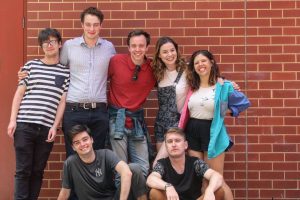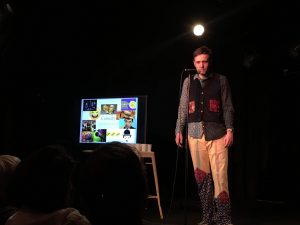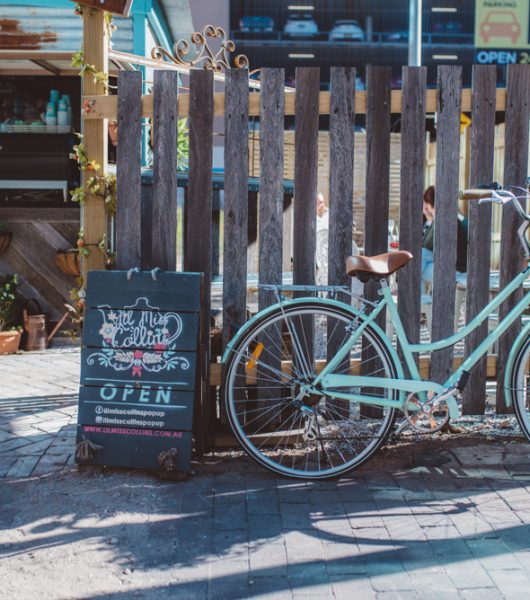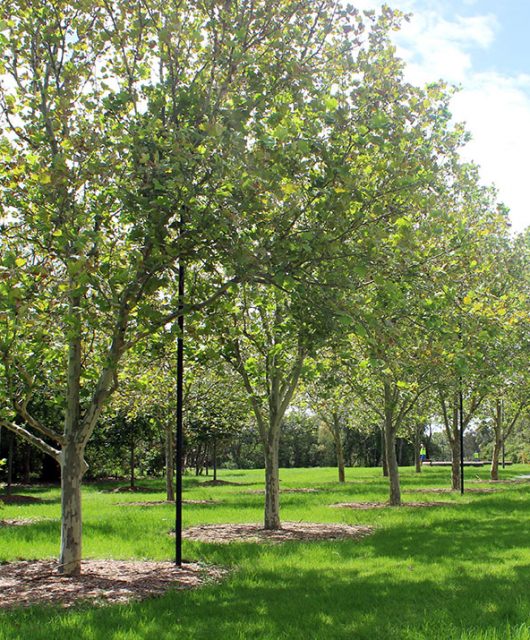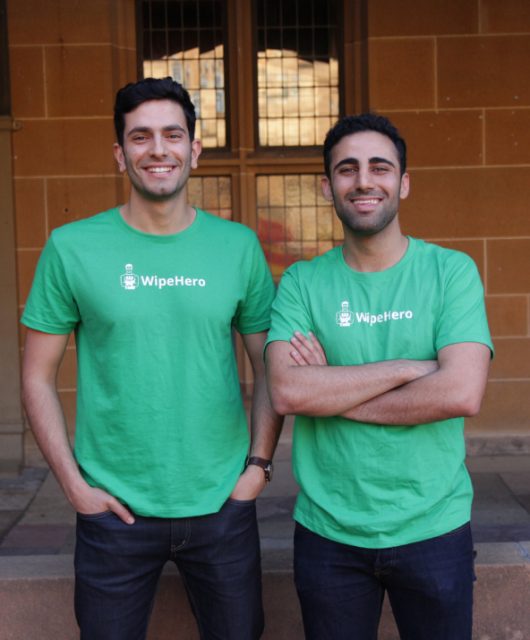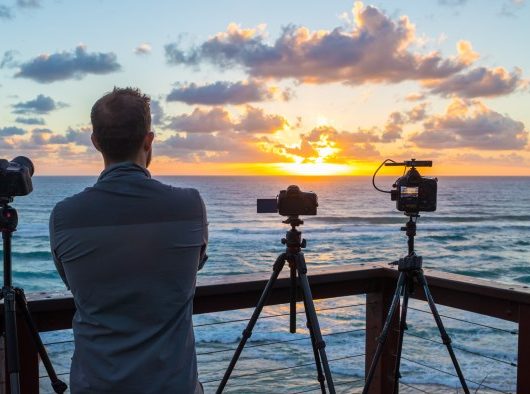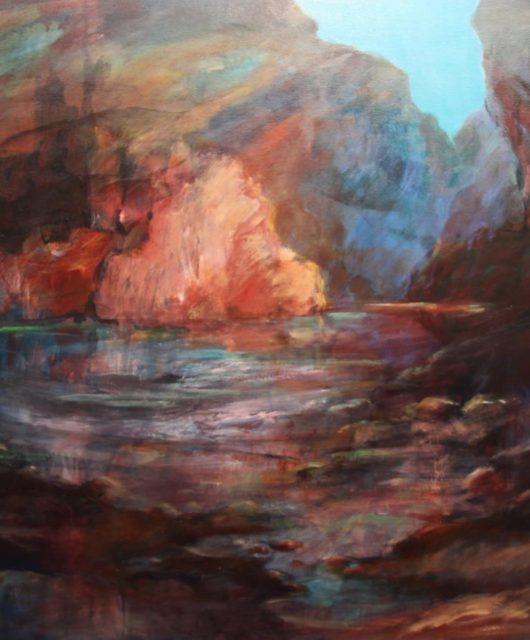Quirky jokes, skittish puns and the crowd bursts into laughter. To make people laugh is a talent and an art. But what goes behind the comedic performance? I was more than surprised when I talked to Alex and Jacinta, comics from the North Shore collective Baby Boy Bolognese who have experienced the highs and lows of a comedian. “Many people really don’t pay attention to how that funny guy on the stage got there,” says Alex.
Imagine you’re naturally funny, developed amazing skills with a beautiful flow and you’ve trained very hard. You get some opportunities and you do very well, everyone is laughing and they love you. But somehow, you still didn’t get that call for the big time. Fast forward a few more years, anyone barely remembers who you are.
It’s simple enough to say that being a comedian isn’t easy in Sydney. Whilst boasting an incredible amount of vibrant young upcoming talent, making it big is a pipe dream for many. By the way, big time does not even mean being a superstar comedian, it actually means just being able to sustain yourself as a job.
Baby Boy Bolognese, a North Shore comedy collective are changing this, with a vision to unite developing young comedians as a talent collective and create a support network for fellow comedians. It brings in young and upcoming comedians within an umbrella and allows them to develop and flourish their individual talent. At the same time, they can support fellow comedians in the collective whilst doing a major live comedic show altogether.
“It started with a family of individuals in the North Shore.”
Baby Boy Bolognese had it’s first beginnings when competing comedians decided to collaborate with each other on a rework for Top Gun.
Jacinta and Alex, both upstarting Sydney University comedians were competitors in the same category.
“We both started doing comedy revues in USYD, which was a big thing. I did the comedy and Alex did the arts so we were essentially competing,” says Jacinta. “We all sort of got together and reworked Top Gun. It was the first time we got together as a group but we weren’t official yet.”
Their official unification came after the group made their way to the Adelaide Fringe festival where many of Australia’s youngest and upcoming comedic talents gathered. As they attended the show they would soon come to meet a brutal reality.
“Everyone from the best comedians of our age to the new and fresh talents were there. As daunting as that sounds, we were still ready to put on a show, have a great time and showcase our talent,” said Alex.
“But I clearly remember that day, it was an awful time putting on the shows because no one really came even if we had a venue.”
“It was a tough learning experience,” says Alex. “On that night we saw one of the most established comedians, a rising star, and he was just handing flyers out everywhere, so desperate, hustling and trying to get people to come to his show.”
“At that moment we suddenly realised that it isn’t a simple task to make it big in the industry. You can definitely try and work extremely hard but still might not get the opportunity to move up.”
As the whole team sat down in a small dive bar near the festival, disheartened yet inspired, they processed what had happened that night, “That’s when we thought as a comedian, as a single creative, going out there alone is too difficult. There needs to be support, an infrastructure that can help bridge the gap,” says Alex.
From that day Baby Boy Bolognese was born.
Both young comedians themselves, Alex and Jacinta know too well the daunting process and had limited access to opportunities growing up.
For Jacinta, it was much more personal, recalling the time comedy found her when she felt she didn’t fit in at school.
“I was that silly and quirky person but I guess also that strange person in school,” says Jacinta. “I felt isolated and had growth phobia, anxiety, and had social problems.”
“I just felt like I didn’t fit in.”
One thing that Jacinta felt close to was the stage. “My one outlet where I was most comfortable with was drama. A lot of things I did was comedic but I never actually thought of it that way.”
“Even though I was kind of like an outcast, I remember one day just writing silly songs with my friends. One is called ‘wtf is wrong with our generation’,” says Jacinta. “It was stupid, silly and weird when I look back, yet at that moment I didn’t feel isolated, but more like I was doing something that made me very happy.”
Although Jacinta found her calling in comedy, the status quo immediately emerged as she stepped foot in the comic circle. “This whole time I have always thought men were funnier than women,” said Jacinta, “There really wasn’t many female comedians at the time and even now there’s still an imbalance.
“I had always perceived comedy as the scariest thing to do for women, where improvisation and stand up was really going up on stage and baring your soul,” says Jacinta.
“I just don’t want my fellow upcoming comedians to be afraid and have this conception.”
Alex recalls that he never had many opportunities in school so he always looked forward to the TV shows and films his dad would bring back and that he had watched countless times every day.
“Everyday I relied on just watching a lot and I mean a lot and took in a lot of content. At first I was a storyteller, but from a young age I would always add in comedic twists to my stories. I wrote heaps of stuff in this treasured book of mine.”
It was not until university when opportunities slowly began to appear for Alex. Yet on the very day he got into the industry, it was bittersweet in a sense. “I realised that, ‘damn, I was finally in the industry, I made it!’, but then I look across the room to all these people that are comedians as well, all seeking that ultimate opportunity to move to the top.”
During these times, it hit hard personally for Alex, in regards to the lack of infrastructure for developing comedians in Sydney.
In a tight and limited industry, both Jacinta and Alex gave similar advice. Jacinta recommends that every young comedian, whether they do open mic night, or stand up in universities to make a change and start talking and befriending fellow comedians and friends.
Finding people who do the same type of comedy can definitely make you feel more comfortable in an industry that can be difficult, self-destroying and male-dominated, especially for women,” says Jacinta. “I can’t stress how important it is to find your community”
Yet once you find your community where do you go from there?
“Infrastructure,” says Alex, “It’s all about building that.”
Alex notes that in Sydney there is a common standard where you quickly hit a glass ceiling as a mid-tier comedian, reaching a point where it becomes hard to sustain yourself financially.
“That’s why you must build your own infrastructure because there are no producers, no big rich money people willing to take the risk for these aspiring comics,” says Alex.
In Baby Boy Bolognese’s view, it’s really about getting that support in a grassroots style of way, a community that lifts each other up.
“I understand it because I’ve been there, those days when you do a standup show and probably 10 people or even less show up,” says Alex. “I know it hurts in the heart, it’s times like these where a support network can really help them.”
In a city where comedy is one of the hidden gems in the country, one of the most significant values Alex and Jacinta hold themselves to is to never forget where you come from.
“No matter where you are, how high up you are, remember your friends, and pull your community up”
In Australia, they often say people have tall poppy syndrome. Furthermore, when someone rises above it all, often times they are not willing to help someone that is starting out because of competition. This is exactly the type of behaviour that is common in Sydney’s comedy scene and that is what Baby Boy Bolognese strives to change.
“To never forget where you came from is to remember your friends,” says Alex, “It’s to pull the community that you ran with.”
“It sounds idealistic but no matter where they are, highs or lows, we will always be there.”
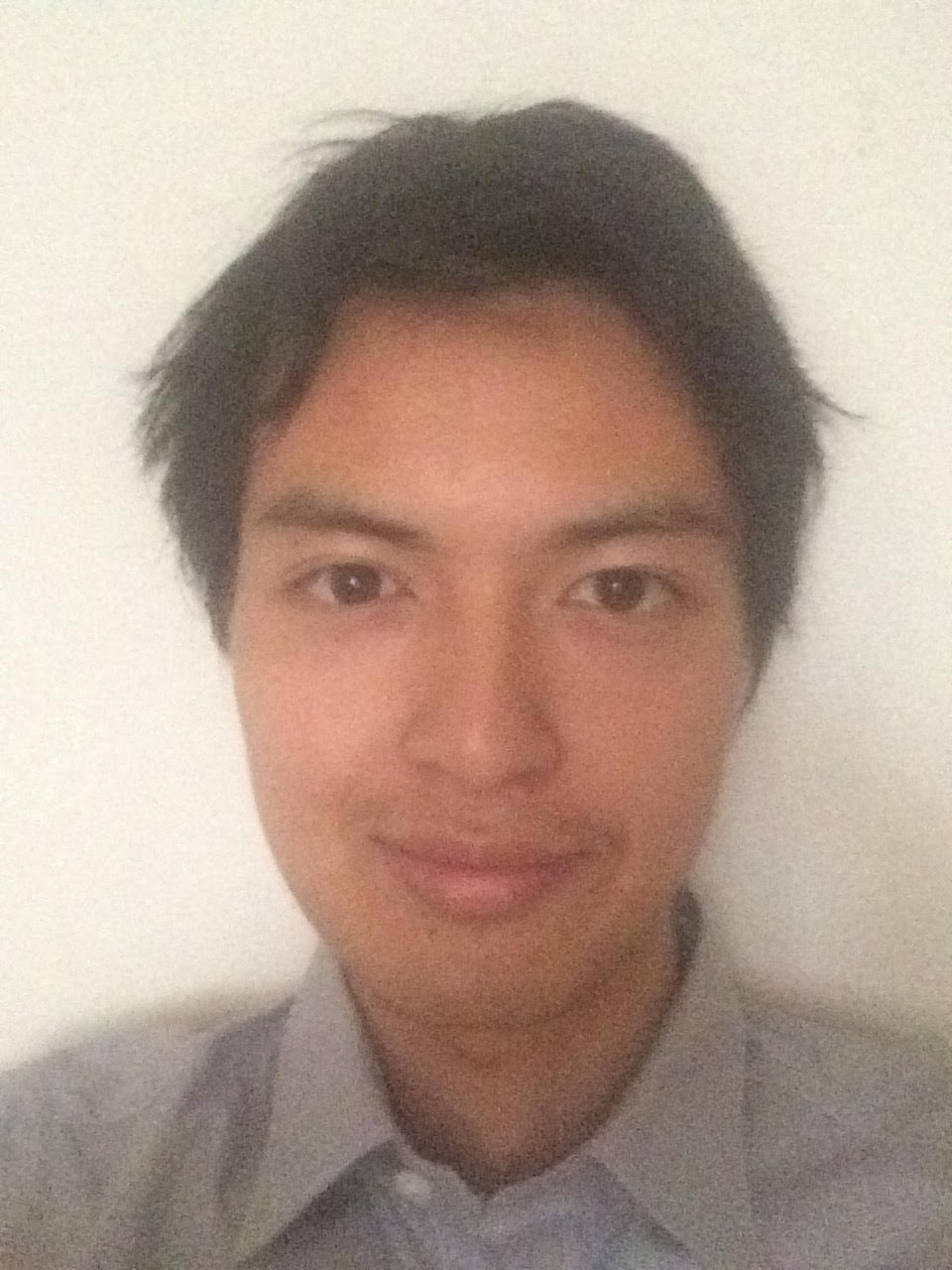
Journo for ECX Magazine

